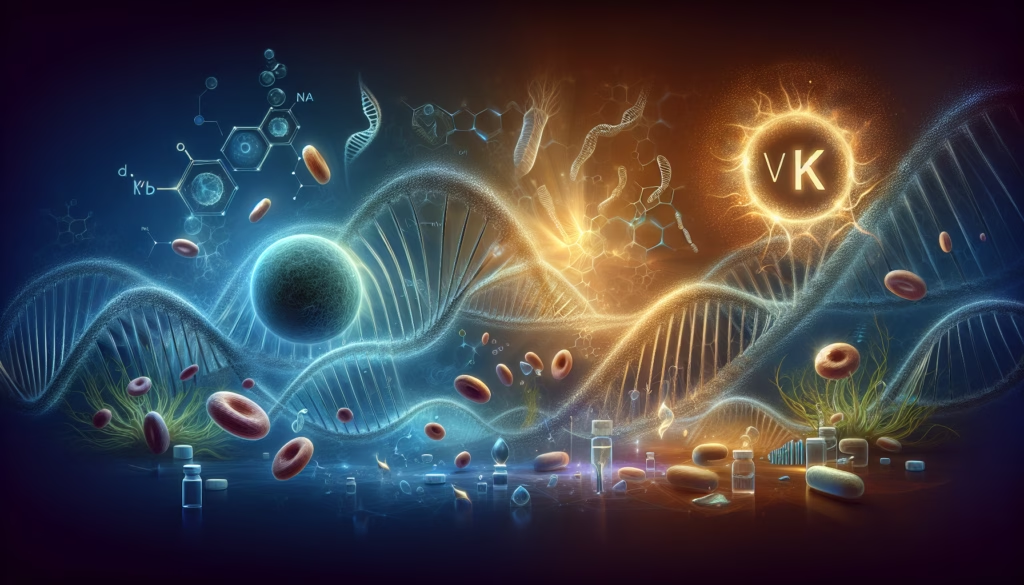
Beta Glucan
Discover the science-backed potential of beta glucan as an adjunct in cancer therapy. This post delves into the latest research
Click 
Medium-chain triglyceride (MCT) oil, derived from coconut or palm oil, has gained attention for its potential role in cancer therapy, particularly when integrated into ketogenic diets. Below is an overview of its mechanisms and benefits based on recent research.
Ketone Body Production:
MCTs are rapidly metabolised into ketone bodies, such as β-hydroxybutyrate (β-HB), which tumour cells cannot efficiently utilise due to defects in mitochondrial oxidative phosphorylation (OxPhos). This metabolic shift deprives cancer cells of glucose, their primary energy source, inhibiting proliferation36.
Anti-Inflammatory Effects:
Pro-Apoptotic Effects:
Lauric acid (a component of MCTs) triggers apoptosis in cancer cells by increasing reactive oxygen species (ROS) levels and activating signalling pathways such as EGFR and ERK. It also promotes stress fibre formation, leading to morphological changes associated with cell death8.
Anti-Angiogenic Properties:
Colon Cancer:
Hepatic Carcinogenesis:
MCT supplementation reduced hepatic tumour incidence in animal models by inhibiting oxidative stress and inflammation3.
Neuroblastoma:
In preclinical studies, MCT-supplemented ketogenic diets enhanced the anti-tumour efficacy of chemotherapy in neuroblastoma xenografts while avoiding calorie restriction-induced cachexia4.
Breast Cancer:
A randomised controlled trial showed that an MCT-based ketogenic diet improved fasting blood sugar levels, lipid profiles, and body composition in breast cancer patients, suggesting systemic health benefits alongside anti-cancer effects5.
Rapid Absorption: Unlike long-chain triglycerides (LCTs), MCTs are absorbed directly into the portal vein and metabolised quickly for energy production without requiring carnitine transport4.
Synergistic Effects: MCT-based ketogenic diets enhance the efficacy of chemotherapy and radiation therapy by sensitising tumour cells to treatment46.
Feasibility: These diets are generally safe and well-tolerated by cancer patients, even those experiencing cachexia49.
MCT oil plays a pivotal role in metabolic therapy for cancer by targeting tumour metabolism, reducing inflammation, and enhancing treatment efficacy. When incorporated into ketogenic diets, it offers a promising complementary approach to conventional therapies for various cancers, including colon, hepatic, neuroblastoma, and breast cancers. Further research is warranted to optimise its use in clinical settings.
Dosage recommendations for MCT oil in the context of cancer treatment are not firmly established due to limited clinical trials investigating optimal dosages and potential benefits. Dosage recommendations typically range from 15 to 50 grams per day, beginning with lower doses to assess tolerance. It is essential to consult with a qualified healthcare professional, such as an oncologist or registered dietitian specialising in oncology nutrition, before incorporating MCT oil or any supplements into a cancer treatment plan. Individual factors such as cancer type, stage, overall health status, and potential interactions with other treatments must be carefully considered.
Breast Cancer, Colorectal Cancer, Leukemia, Lung Cancer, Prostate Cancer, Skin Cancer (including Melanoma)
MCT oil is generally safe when consumed in moderation, but it can cause side effects, especially at higher doses or when first introduced into the diet. Below are the primary side effects:
Common Symptoms: Stomach pain, diarrhoea, bloating, gas, nausea, and vomiting are frequent, particularly when MCT oil is taken in large amounts or on an empty stomach145.
Management: Start with small doses and gradually increase intake to allow the digestive system to adapt811.
Cholesterol Impact: MCT oil may raise LDL (“bad”) cholesterol levels in some individuals due to its high saturated fat content, potentially increasing heart disease risk311.
Heart Palpitations: Some people report experiencing heart palpitations, possibly linked to the proarrhythmic effects of saturated fatty acids3.
Fat Accumulation: Prolonged high doses may lead to fat build-up in the liver, though this is rare and typically associated with excessive consumption (e.g., over 45g/day)1511.
MCT oil is calorie-dense and may contribute to weight gain if not balanced within a controlled diet. Additionally, it can stimulate hunger hormones in some individuals, leading to overeating13.
Some users experience flu-like symptoms, brain fog, or skin rashes when starting MCT oil due to a Herxheimer reaction from gut microbiome changes5.
Diabetes: MCTs can increase ketone production, which may pose risks for individuals with uncontrolled diabetes7.
Liver Disease: Those with pre-existing liver conditions should avoid MCT oil as it is metabolised by the liver and could exacerbate issues7.
To minimise side effects:
Start with a low dose (e.g., 1/4 teaspoon) and increase gradually59.
Take MCT oil with food rather than on an empty stomach5.
Use powdered forms of MCT oil if liquid forms cause digestive distress5.
Consulting a healthcare provider is advised before incorporating MCT oil into your diet, especially for individuals with pre-existing health conditions.
MCT oil has been tested in combination therapies, primarily with chemotherapy and radiation, across multiple cancer types.
Here are the key findings from clinical and preclinical studies:
Colon Cancer:
A 1-year clinical trial combined a modified MCT-based ketogenic diet with chemotherapy in stage IV colon cancer patients. Results showed:
Neuroblastoma:
Preclinical studies demonstrated that an MCT-supplemented ketogenic diet enhanced the anti-tumour efficacy of low-dose chemotherapy in neuroblastoma xenografts. Benefits included:
Glioma and Lung Cancer:
MCT-based ketogenic diets sensitised tumours to radiation therapy in preclinical models, improving outcomes in malignant glioma and lung cancer4.
Enhanced oxidative stress in tumour cells, increasing radiation’s cytotoxic effects4.
Metabolic Synergy:
MCTs rapidly elevate ketone bodies (e.g., β-hydroxybutyrate), which:
Anti-Inflammatory Effects:
MCTs reduce oxidative stress markers (e.g., 4-HNE) and inflammatory cytokines (TNF-α, IL-6), creating a hostile microenvironment for tumors5.
Breast Cancer:
While MCT components like lauric acid show anti-cancer potential in vitro, clinical trials combining MCT-based diets with breast cancer therapies are still emerging67.
Safety:
Most studies report good tolerability, but long-term effects of MCTs in combination therapies require further investigation24.
In summary, MCT oil has shown promise in combination with chemotherapy and radiation, particularly in colon cancer and neuroblastoma, by leveraging metabolic and anti-inflammatory synergies.
US National Library of Medicine research on MCT Oil
Europe PMC research on MCT Oil
Pubmed research on MCT Oil
MCT oil has been shown to positively impact quality of life in several ways, particularly through its effects on energy, cognition, weight management, and metabolic health. Below are the key areas where MCT oil can improve quality of life:
Improved Memory and Thinking: MCT oil provides ketones as an alternative energy source for the brain, which can enhance cognitive function, particularly in individuals with neurological conditions like Alzheimer’s disease. Studies have shown stabilisation or improvement in cognition for 80% of participants with mild to moderate Alzheimer’s after consistent MCT oil intake over nine months356.
Sharper Mental Clarity: Some users report improved focus and mental sharpness due to the rapid availability of ketones as brain fuel24.
Quick Energy Boost: MCTs are rapidly metabolised and converted into energy, offering sustained energy without the dips associated with carbohydrate-based sources. This benefit is particularly helpful for athletes or individuals on ketogenic diets147.
Improved Physical Performance: A three-month trial showed increased grip strength and walking speed among participants taking MCT oil, suggesting benefits for physical fitness and endurance7.
Enhanced Satiety: MCT oil promotes a feeling of fullness, reducing overall calorie intake and aiding in weight loss or maintenance145.
Reduced Fat Storage: Unlike long-chain triglycerides (LCTs), MCTs are less likely to be stored as fat, helping prevent obesity and reduce waist circumference14.
Improved Nutrient Absorption: MCT oil accelerates nutrient absorption in the gut, which can enhance overall digestion and support better gut health4.
Anti-Bacterial Properties: MCTs may help fight bacterial growth in the digestive system, improving gut microbiome balance5.
Better Blood Sugar Control: MCT oil helps manage blood sugar levels by promoting fat-based energy metabolism rather than glucose reliance, which is beneficial for individuals with type 2 diabetes or metabolic syndrome68.
Cholesterol Balance: It may lower LDL (“bad”) cholesterol and increase HDL (“good”) cholesterol, supporting heart health2.
Collagen Production: By enhancing nutrient absorption, MCT oil supports collagen synthesis, contributing to healthier skin, stronger joints, and improved hair growth4.
While MCT oil offers numerous benefits that enhance quality of life, it may cause mild side effects such as gastrointestinal discomfort when introduced abruptly or consumed in high doses. Starting with small amounts and gradually increasing intake can mitigate these issues.
In summary, consistent use of MCT oil can improve cognitive function, energy levels, weight management, gut health, and metabolic health—contributing significantly to overall quality of life.
We’ve done our best to include as much information as possible for this supplement.
If you have any other questions, please send us a message or join our Skool Group and ask our knowledgeable and friendly community.
MCT oil is readily available as a food supplement. It is generally classified as a food product and does not require a prescription. MCT oil can be purchased from health food stores, pharmacies, supermarkets, and online retailers.
Elderly individuals and those with specific health conditions (e.g., AD, epilepsy, metabolic syndrome) have shown significant benefits from MCT oil supplementation. However, further research is required to clarify its effects across different demographic groups.
MCT oil’s efficacy can be influenced by several resistance mechanisms, primarily related to metabolic, cellular, and individual variability.
Here’s a summary of findings from the research:
Mechanism: While MCT oil increases ketone production during endurance exercise, the body often fails to utilise these ketones as a primary energy source. This is attributed to the preferential oxidation of carbohydrates and long-chain fatty acids during high-intensity activities.
Evidence: In acute endurance exercise studies, MCT oil-induced ketones did not improve performance or substrate utilisation (respiratory exchange ratio, glucose levels, or lactate concentration) in healthy individuals2.
Mechanism: MCT oil enhances mitochondrial respiration (oxygen consumption rate, OCR) in immune cells like macrophages during inflammation3. However, pre-existing mitochondrial defects or metabolic disorders may impair this process, reducing anti-inflammatory benefits.
Evidence:
In LPS-stimulated macrophages, MCT oil increased basal and maximal mitochondrial respiration by ~65% compared to controls.
Dysfunctional mitochondria (e.g., due to genetic mutations or chronic diseases) may not respond to MCTs, limiting their immunomodulatory effects3.
Variations in genes regulating fatty acid transport (CD36) or cholesterol efflux (ABCA1) may alter MCT oil’s metabolic benefits3.
Insulin Resistance Pathways:
MCT oil suppresses insulin resistance via inhibition of NF-κB and p38 MAPK pathways5. Pre-existing hyperactivation of these pathways (e.g., in chronic inflammation) could diminish its efficacy.
Gastrointestinal Tolerance: High doses (>30g) often cause diarrhoea, nausea, or cramping2, forcing users to reduce intake below therapeutic thresholds.
Saturation of Transport Systems: Rapid absorption of MCTs via the portal vein may exceed hepatic processing capacity, leading to incomplete β-oxidation and reduced ketogenesis16.
Metabolic Adaptation: Long-term MCT oil use may downregulate ketone production or fat oxidation efficiency, as seen in studies where prolonged supplementation failed to sustain weight loss or exercise performance24.
Carbohydrate Intake: High-carbohydrate diets counteract MCT oil’s ketogenic effects by maintaining glucose as the primary energy substrate6.
Fat Composition: Diets rich in long-chain triglycerides (LCTs) compete with MCTs for absorption and metabolism, potentially blunting their benefits8.
Exercise Performance: Acute MCT supplementation shows minimal ergogenic effects in healthy populations due to inefficient ketone utilisation during exercise2.
Inflammatory Modulation: Efficacy depends on mitochondrial health and genetic factors influencing lipid metabolism35.
Metabolic Syndromes: MCT oil’s benefits on insulin resistance may vary with baseline inflammatory status and genetic predisposition45.
Further research is needed to clarify these resistance pathways and optimise MCT oil’s therapeutic use.
Several preclinical studies in cell cultures and animal models have shown that MCTs can inhibit the growth of certain types of cancer cells. These studies have explored mechanisms such as induction of apoptosis, reduction of cell proliferation, and alterations in cellular energy metabolism. However, these findings have not been consistently replicated in human studies. The translation of preclinical results to clinical efficacy remains a significant challenge in cancer research, highlighting the need for well-designed human trials to validate these preliminary findings.
Currently, there are no large-scale, actively recruiting clinical trials specifically investigating the efficacy of MCT oil as a primary treatment for cancer. Some small pilot studies and observational research may be ongoing, but these are typically in early phases and not designed to provide definitive evidence of efficacy. Patients interested in participating in MCT oil research should consult clinicaltrials.gov and discuss options with their healthcare providers.
Research has identified genetic markers that may influence MCT oil efficacy, though evidence remains preliminary.
Below are key findings:
Alzheimer’s Disease:
MCT oil improved cognition in Alzheimer’s patients with the APOE4 genotype (a genetic risk factor for AD). This group showed better cognitive stabilisation compared to non-carriers, likely due to enhanced ketone utilisation compensating for impaired glucose metabolism in APOE4 carriers57.
Lipid Metabolism:
MCTs modulate lipid metabolism and inflammation via the nuclear receptor PPARβ/δ. Genetic variations in PPARβ/δ may influence how effectively MCTs regulate genes like CD36 (fatty acid transport) and ABCA1 (cholesterol efflux), impacting anti-inflammatory and metabolic benefits4.
Ketogenic Diet Response:
Variants in KCNJ11 (involved in insulin secretion) and BAD (apoptosis regulator) are linked to differential responses to ketogenic diets, which often include MCT oil. These genes may affect metabolic adaptation to ketosis induced by MCTs8.
A 15-month Alzheimer’s trial noted that 20% of participants did not benefit from MCT oil, suggesting uncharacterised genetic or epigenetic factors may influence responsiveness3.
Most studies focus on mechanisms (e.g., PPARβ/δ signaling4) rather than direct genetic associations.
Larger genome-wide studies are needed to confirm these markers and identify others.
In summary, APOE4 and PPARβ/δ are the most studied genetic factors linked to MCT oil efficacy, particularly in neurological and metabolic contexts.

Discover the science-backed potential of beta glucan as an adjunct in cancer therapy. This post delves into the latest research

Explore the emerging world of hydrogen gas (H₂), also known as Brown Gas, and its remarkable potential as an adjunct

Explore the latest scientific insights into vitamin K2 and its promising role in cancer therapy. In this comprehensive blog post,
Apoptosis, or programmed cell death, is a natural process where cells self-destruct when they are damaged or no longer needed. This is crucial for maintaining healthy tissues and preventing diseases like cancer.
Drugs and supplements that induce apoptosis help eliminate cancerous cells by triggering this self-destruct mechanism, ensuring that harmful cells are removed without damaging surrounding healthy tissue.
Understanding and harnessing apoptosis is vital in the fight against cancer, as it targets the root cause of the disease at the cellular level.
Cell proliferation is the process by which cells grow and divide to produce more cells. While this is essential for growth and healing, uncontrolled cell proliferation can lead to cancer.
Drugs and supplements that inhibit cell proliferation help prevent the rapid multiplication of cancerous cells, slowing down or stopping the progression of the disease.
By targeting the mechanisms that drive cell division, these treatments play a vital role in controlling and potentially eradicating cancer.
Cancer cells often hijack specific biological pathways to grow and spread. Drugs and supplements that target these pathways can disrupt the cancer cell’s ability to survive and multiply.
By focusing on the unique mechanisms that cancer cells use, these treatments can be more effective and cause fewer side effects compared to traditional therapies.
Targeting specific pathways is a key strategy in precision medicine, offering a tailored approach to combat cancer at its core.
Angiogenesis is the process by which new blood vessels form, supplying nutrients and oxygen to tissues. Cancer cells exploit this process to fuel their growth and spread.
Drugs and supplements that inhibit angiogenesis can effectively starve cancer cells by blocking the formation of these new blood vessels.
By cutting off the supply lines that tumors rely on, angiogenesis inhibitors play a crucial role in controlling and potentially shrinking cancerous growths.
Immunotherapy harnesses the power of the body’s immune system to combat cancer. By boosting or restoring the immune system’s natural ability to detect and destroy cancer cells, immunotherapy offers a targeted and effective approach to treatment.
Drugs and supplements that support immunotherapy can enhance the immune response, making it more efficient at identifying and attacking cancer cells.
This innovative approach not only helps in treating cancer but also reduces the risk of recurrence, providing a powerful tool in the fight against this disease.
Inflammation is the body’s natural response to injury or infection, but chronic inflammation can contribute to the development and progression of cancer.
Drugs and supplements with anti-inflammatory properties help reduce inflammation, thereby lowering the risk of cancer and other chronic diseases.
By targeting the inflammatory processes, these treatments can help maintain a healthier cellular environment and prevent the conditions that allow cancer to thrive.